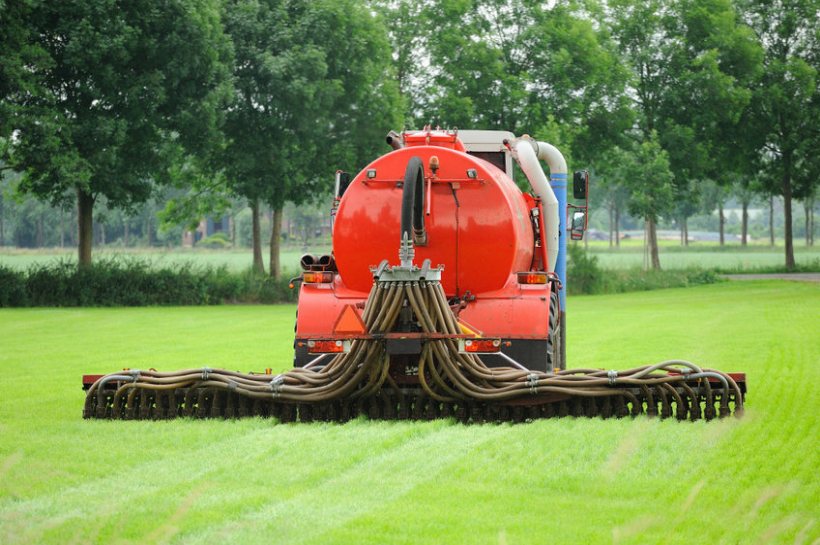
Welsh Senedd members have voted to review controversial rules which aim to tackle agricultural pollution in the country.
The Welsh government has designated the whole of Wales a nitrate vulnerable zone (NVZ) as part of the new Control of Agricultural Pollution Regulations.
Before, approximately 2.4 percent of the land area of Wales was designated a NVZ.
The devolved government has also introduced tougher rules on the storage and spread of slurry.
But a joint opposition party motion, which was passed by 58 votes to 0 on 9 June, has called for a Senedd committee to hold an 'urgent' review into the rules.
Plaid Cymru's agriculture spokesman Cefin Campbell called the vote 'a victory for common sense'.
"How on earth can the minister justify offering £11m in financial support, when the government's own assessments suggest that the cost to farmers could be between £109m, and £360m?" he added.
Welsh farming industry bodies have repeatedly expressed frustration at the way the pollution regulations were pushed through.
The Farmers' Union of Wales (FUW) warned of the impacts that the rules may have on farmers and rural communities as they could cost the industry 'millions'.
Vice President Dai Miles said: “We sincerely hope that the review will take into full consideration the financial implications these regulations have on small and medium sized farm businesses.
“As farmers we care deeply about the environment and with this acceptance of a need for a review we have the opportunity to once again become partners with Welsh government in the efforts to tackle pollution and to protect our environment.”
According to the Welsh government, agricultural pollution incidents 'remain very high', averaging over three per week in the last three years.
It said some of these had led to the contamination of drinking water sources and the destruction of plant and aquatic life in parts of waterways.
Rural Affairs Minister Lesley Griffiths said 'more rapid progress on reducing pollution from agriculture' was needed from 'across the whole industry, and across the whole of Wales'.
